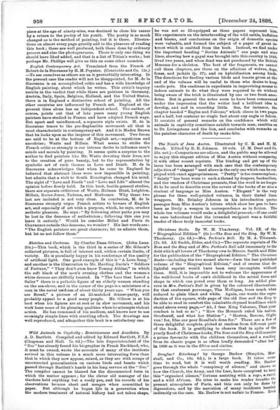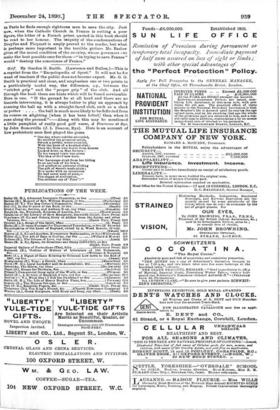Dreyfus? Esterhazy ? by George Barlow (Simpkin, Mar. shall, and
Co., 10s. 6d.), is a large book. It takes some time to read, but it is well worth reading. Mr. Barlow goes through the whole "conspiracy of silence," and shows us how the Church, the Army, and the Law, have conspired to keep this "organised silence," fortune assisting with a rope, a razor, and a wild African. He tries to make his reader breathe the present atmosphere of Paris, and this can only be done by digressions, and by the narration of many incidents bearing indirectly on the case. Mr. Barlow is not unfair to France. Ev"
in Paris he finds enough righteous men to save the city. Just now, when the Catholic Church in France is cutting a poor figure, the letter of a French priest quoted in this book should be read to her honour. The iniquity of the condemnations of Dreyfus and Picquart is amply proved to the reader, but what is perhaps more important is the terrible picture Mr. Barlow gives of the moral condition of the coantry, whose governors —to make the best possible case for them—" in trying to save France" would "destroy the conscience of France."







































 Previous page
Previous page